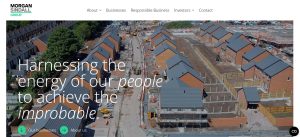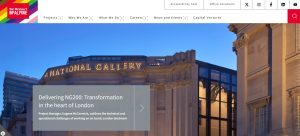Top 10 Construction Companies in UK 2025
In 2025, the UK construction landscape is marked by transformation and technological disruption. But amid fierce competition and fast-paced developments, what truly separates a standout construction company from the rest?
It’s not just about the size of the workforce or the number of cranes on the skyline. The defining features of the top construction companies in the UK include their ability to deliver complex projects on time and budget, adopt sustainable building practices, invest in digital construction technologies, and navigate evolving regulations with ease.
Their commitment to quality, client satisfaction, and long-term community impact ensures they remain at the forefront of the industry. Moreover, reputational strength, consistent financial performance, and an emphasis on safety and innovation continue to shape which firms rise to the top each year.
What is The Growth of the UK Construction Industry in 2025?

The UK construction industry is experiencing sustained growth as of 2025, backed by major government investments in housing, infrastructure, education, and healthcare. According to the Office for National Statistics (ONS), the sector contributes over £130 billion to the UK’s GDP and employs more than 2.5 million people.
A large part of this growth is driven by increased demand for:
- Affordable housing, due to population increases in urban areas
- Green and sustainable buildings, to meet the UK’s Net Zero 2050 goals
- Major transport and infrastructure projects, such as HS2 and smart motorway upgrades
This growth is also underpinned by the rise in modern construction methods, including modular construction, digital twin modelling, and the use of advanced data analytics for project management and cost control.
Why Are UK Construction Companies Gaining Global Recognition?
UK construction firms are not only shaping the nation’s landscape but also expanding their presence on the global stage. The international demand for British construction expertise continues to grow, especially in sectors like transport, healthcare, and hospitality.
Several of the top UK firms are now delivering high-value projects across Europe, the Middle East, and Asia. These include smart city developments, high-rise commercial towers, and infrastructure frameworks in emerging economies.
British firms are known for their strong regulatory compliance, emphasis on health and safety, and efficient project management—qualities that make them trusted global partners.
Projects like airports in the UAE, metros in India, and sports stadiums in Qatar are a testament to the global footprint of UK construction firms.
What Role Does Sustainability Play in UK Construction Firms?

Environmental responsibility has shifted from a trend to a core business principle. By 2025, construction companies are among the most scrutinised when it comes to carbon emissions and waste generation.
As a result, leading UK construction companies have embraced sustainability through:
- The use of low-carbon concrete alternatives
- Investment in zero-emission machinery
- Integration of renewable energy systems like solar and wind
- Implementing BREEAM and LEED standards for sustainable certification
- Achieving carbon neutrality in both operations and supply chains
Companies such as Willmott Dixon and Mace Group have made significant strides in reducing the carbon footprint of their projects. Willmott Dixon, for instance, has pledged to become net zero in its entire supply chain by 2040, and Mace has already achieved carbon neutrality in operations since 2020.
How Do These Construction Firms Impact the UK Economy?
The construction industry is a vital pillar of the UK economy. The top 10 firms collectively contribute tens of billions of pounds annually and support regional development, job creation, and infrastructure modernisation.
Many of these companies are also instrumental in delivering public sector contracts—from building schools and hospitals to renewing transport systems and creating new homes. By generating direct and indirect employment, they also help to revitalise local economies and foster skills development through apprenticeships and training programmes.
In areas of urban regeneration, such as in Manchester, Birmingham, and Glasgow, construction firms have played a transformative role, turning underdeveloped districts into thriving business and residential hubs.
Top 10 Construction Companies in UK 2025
1. Balfour Beatty

Founded in 1909 by George Balfour and Andrew Beatty in a modest office near Cannon Street Station, Balfour Beatty has grown from humble beginnings into the UK’s most prominent construction and infrastructure firm.
Their first major project, the Dunfermline and District Tramways, set the stage for a century of impactful civil engineering. By 1917, their involvement in constructing the Blackwater gravity dam marked the start of a long tradition of delivering major infrastructure projects across Britain.
During World War II, Balfour Beatty played a key defensive role by constructing the Churchill Barriers in Orkney—2.3 km of causeways that sealed off the vital naval base at Scapa Flow. This project symbolised the company’s shift into national importance.
In the following decades, Balfour Beatty’s expansion was both strategic and global. The company became part of BICC in 1969, allowing diversification into motorway construction, property development, and building.
In 1976, they initiated work on Dubai’s Jebel Ali Port—the world’s largest man-made harbour—ushering in a new era of international operations. Their US entry in 1986 through the acquisition of Heery strengthened their global standing further.
The 2000s saw accelerated growth through acquisitions such as Centex Construction in the US and Mansell and Birse in the UK. A major milestone was the joint venture acquisition of Gammon Construction in Hong Kong, solidifying its tri-continental presence across the UK, US, and Asia.
Key Areas of Operation
Today, Balfour Beatty is a globally recognised infrastructure leader with more than 27,000 employees across three main regions. Its operations span three core business areas:
| Business Segment | Description |
| Infrastructure Investments | Develops and finances infrastructure in the UK and US, including PPPs and housing projects |
| Construction Services | Civil engineering, building, rail, and M&E services across UK, US, and Hong Kong |
| Support Services | Designs, upgrades, and maintains key infrastructure such as roads, rail, and power grids |
In the UK alone, Balfour Beatty employs over 13,000 people and operates a network of specialised subsidiaries, including:
- Balfour Beatty Investments: long-term infrastructure financing
- Balfour Beatty Kilpatrick: M&E engineering systems
- Balfour Beatty Ground Engineering: geotechnical and piling services
- Balfour Beatty Homes: residential development in Scotland and England
- Balvac: structural repair and maintenance solutions
- Painter Brothers: structural steel fabrication
- BPH: crawler crane hire services
Their end-to-end delivery model, from finance to maintenance, positions Balfour Beatty as the backbone of national infrastructure development.
2. Kier Group

With a century of innovation and commitment to infrastructure, Kier Group has become a pillar in the UK’s construction landscape. Their core strength lies in delivering public-sector projects that enhance everyday life—from schools and hospitals to highways and energy networks.
Kier is a strategic supplier to the UK Government, and currently manages more than 400 live projects nationwide. As of 2025, the company employs around 10,000 professionals, with a firm focus on long-term frameworks totalling approximately £144 billion in value. Kier’s reputation is rooted in its ability to consistently deliver complex, essential infrastructure.
Its diverse service offerings are structured into four distinct business divisions:
| Division | Focus Area |
| Transportation | Sustainable transport infrastructure across highways, aviation, rail, and ports |
| Natural Resources, Nuclear & Networks | Long-term contracts in nuclear, energy, water, and telecoms |
| Construction | Design and delivery of facilities for education, healthcare, defence, and justice |
| Property | Mixed-use, logistics, and sustainable urban regeneration projects across the UK |
A Vital Contributor to the UK Economy
In FY24, Kier reported £4.0 billion in revenue and an order book valued at £10.8 billion. With a Glassdoor rating of 4.1 and a 67% employee engagement score, the company emphasises workplace culture and community values as much as operational efficiency.
Kier’s approach to sustainability includes reducing environmental impact, supporting apprenticeships, and delivering projects such as the UK’s first all-electric prison, underlining its status as a forward-thinking contractor.
3. Laing O’Rourke

Laing O’Rourke positions itself as a future-focused construction firm. As one of the few privately owned global contractors, the company stands out for its unwavering commitment to innovation, digital engineering, and off-site manufacturing.
Operating across the UK, Australia, and the Middle East, Laing O’Rourke’s 150-year heritage is now matched by its ambition to be the construction sector’s recognised leader for innovation by 2025.
The company is particularly renowned for its Design for Manufacture and Assembly (DfMA) approach, leveraging offsite pre-fabrication to reduce time, waste, and risk on complex projects. This method has revolutionised how schools, hospitals, and commercial buildings are delivered in the UK.
Technological Excellence Meets Engineering Expertise
Laing O’Rourke has integrated AI, digital twins, and BIM into its core operations. These innovations are not merely experimental; they’re practical tools used in high-stakes projects, such as Crossrail and large hospital redevelopments.
Its teams are highly trained, often working collaboratively with clients and stakeholders to ensure projects not only meet technical specifications but deliver long-term societal value.
With an eye on sustainability, safety, and certainty, Laing O’Rourke is a clear leader in reshaping what modern construction can be.
4. Morgan Sindall Group

Morgan Sindall Group is one of the most diversified construction and regeneration companies in the UK. Operating through a family of specialist brands, it excels across public and private sectors in construction, infrastructure, fit-out, and property services.
What sets Morgan Sindall apart is its deep commitment to community-centric development and perfect delivery, a philosophy focused on achieving high-quality outcomes for clients, end-users, and local stakeholders.
The group works across an impressive range of sectors, including:
- Education: constructing cutting-edge school and university buildings
- Healthcare: delivering modern hospitals and treatment centres
- Commercial: transforming retail, office, and industrial spaces
- Leisure & Community: enhancing civic spaces and sports facilities
- Defence and Emergency Services: supporting operational capability
Morgan Sindall’s approach is grounded in intelligent solutions that blend digital design, carbon reduction tools, and modern construction techniques. The goal: to create places that are sustainable, inspiring, and resilient.
Divisions and Specialisations
| Division | Expertise |
| Morgan Sindall Construction | Projects in education, health, leisure, and commercial markets |
| Morgan Sindall Infrastructure | Delivery in transport, water, nuclear, and energy sectors |
| Morgan Lovell & Overbury | Interior fit-outs and office spaces for corporate clients |
| Muse Places | Urban regeneration and mixed-use development |
| Morgan Sindall Property Services | Repairs and maintenance for social housing |
The company’s ethos of responsible business ensures it delivers economic, environmental, and social value in every region it operates.
5. Mace Group

Mace Group is a globally influential delivery consultancy and construction expert known for completing some of the most complex, high-profile projects in the world. Operating across four hubs such as Europe, Americas, Asia Pacific, and the Middle East, Mace has evolved into a powerhouse that redefines speed, quality, and sustainability in the built environment.
Founded on the principle that construction could be more innovative and responsible, Mace continues to set benchmarks for how projects should be designed, managed, and executed.
From towering skyscrapers to world-class data centres and airports, Mace’s work is visible in many of the UK’s major cities and infrastructure nodes.
Delivery Beyond Construction
Mace is much more than a traditional contractor. Its operations span several service areas:
| Service Area | Description |
| Contracting | Full lifecycle delivery of construction projects |
| Construction Management | Acting as a Tier-1 contractor or consultant |
| Fitout and Retrofit | High-end refurbishments for commercial and residential environments |
| Specialist Services | Technical services in logistics, engineering, and digital delivery |
Mace is known for its agility and entrepreneurship, frequently incorporating modern methods of construction such as digital fabrication and offsite production. The company has led initiatives in carbon reduction, workforce diversity, and smart city development.
What sets Mace apart is its vision of building not just physical assets, but legacies. Every project is seen as an opportunity to leave a lasting social, economic, and environmental impact. This makes Mace not just a builder of structures, but a shaper of the future.
6. Galliford Try
Galliford Try stands among the most respected construction companies in the UK, known for delivering critical buildings and infrastructure with a community-first mindset. With a workforce of over 4,300 employees, the company’s purpose goes beyond construction—it’s about creating environments that have a lasting positive impact on the people who live and work in them.
With a heritage spanning over a century, Galliford Try continues to grow as a people-oriented and progressive business. At the core of its operations is a strong focus on sustainability, technical innovation, and long-term value for stakeholders.
Strategic Brand Portfolio
Galliford Try operates through several distinct and specialised brands, allowing the group to cover a wide range of services:
| Brand Name | Specialisation |
| Morrison Construction | Leading contractor in Scotland offering construction, investments, and facilities management |
| Ham Baker Engineering | Inspection, maintenance, and operation of water assets |
| Oak Specialist Services | Façade construction, green retrofits, fire protection and building surveys |
| Asset Intelligence | Electronic, fire, and physical security for critical national infrastructure |
| Lintott | Packaged water treatment systems, software integration, and electrical control panels |
| AVRS Systems | Mechanical and electrical design-build solutions, focused on water and energy sectors |
From modern schools to infrastructure maintenance and asset protection, Galliford Try plays a pivotal role in projects across the UK. Its impact is particularly notable in Scotland through Morrison Construction, which leads many of the nation’s most significant public-sector projects.
The company’s commitment to values-driven construction and its dedication to innovation and sustainability make it a reliable force in the UK construction landscape.
7. Sir Robert McAlpine

A family-owned company with more than 155 years of experience, Sir Robert McAlpine has been a part of Britain’s infrastructure story since the Victorian era. The firm’s legacy includes iconic bridges, viaducts, and railways, and its modern portfolio showcases a continued commitment to delivering complex, technically demanding projects with exceptional attention to detail.
McAlpine is not just a builder, it’s a full-service construction partner offering a broad spectrum of capabilities across the project lifecycle.
Comprehensive Expertise and Services
| Service Area | Key Capabilities |
| Pre-Construction | Early-stage planning, budgeting, and value engineering |
| Construction & Management | Delivery of complex builds and infrastructure management |
| Geospatial Engineering | Site analysis with minimal disruption through digital surveying tools |
| Facades and Lifting | Specialist façade design and integrated lifting/logistics services |
| Digital Construction | Use of mobile tech, BIM, and project simulation for performance excellence |
| Customer Care | Lifecycle client engagement and satisfaction monitoring |
The firm also operates in heritage and signature new build projects, combining its engineering excellence with sensitivity toward architectural conservation. McAlpine’s industrial and commercial portfolios are expanding, and it has delivered several advanced manufacturing facilities and modern office complexes.
In healthcare, McAlpine constructs technologically advanced hospitals and therapeutic environments. In defence, it remains a trusted delivery partner for high-security infrastructure projects, further highlighting its capability and reliability.
Sir Robert McAlpine exemplifies the merger of tradition and modernity building not just for today, but with a vision for the future.
8. ISG Ltd
Once regarded as a leading name in the UK construction industry, ISG Ltd was known for its fit-out excellence and large-scale commercial projects. The company operated across several divisions like Construction, Fit-Out, Engineering Services, and Retail—providing tailored solutions to clients across the public and private sectors.
However, in September 2024, ISG entered administration and ceased trading across its UK operations. The closure affected multiple subsidiaries, including ISG Fit Out Limited, ISG Engineering Services Limited, and ISG Construction Limited.
While the company was a key player in interior transformations, data centres, and corporate environments, its financial position ultimately led to its collapse. No further contracts are being undertaken, and all ongoing works were halted under the direction of appointed joint administrators.
This unfortunate turn marked a significant shift in the UK construction landscape, leaving a gap in the high-end fit-out market once dominated by ISG. It serves as a reminder of the financial volatility in the construction sector, even among major firms.
9. Wates Group

As one of the UK’s oldest and largest privately owned construction companies, Wates Group has a proud heritage spanning more than 125 years. Today, the company maintains a strong position in both the public and private sectors, with expertise in building everything from hospitals and schools to commercial and residential developments.
In 2024, Wates had an order book valued at £3.63 billion and delivered over 312 live projects nationwide. What sets Wates apart is its commitment to social value, sustainability, and community investment, which are woven into every project.
Broad Sectoral Reach
Wates operates across a wide array of sectors, including:
- Civic and heritage buildings
- Healthcare and justice infrastructure
- Retail and commercial premises
- Science, technology, and education facilities
- Residential and industrial buildings
The company leverages offsite manufacturing to enhance efficiency, reduce waste, and improve on-site safety. Its digital engineering practices, such as Building Information Modelling (BIM), play a central role in optimising design and construction.
Sustainability and Social Value
Wates is deeply committed to reducing its environmental footprint. This includes using low-carbon materials like green steel and concrete, and supporting sustainable supply chains. The firm also invests heavily in education, small business mentoring, and local charity initiatives—ensuring that construction is a force for good beyond the site boundary.
Its Adapt Zero programme and involvement in carbon-neutral design reflect a forward-thinking approach, making Wates a key contributor to the UK’s net-zero goals.
10. Willmott Dixon

Rounding off the top 10 is Willmott Dixon, a family-run business that brings a uniquely local approach to national-scale construction. With a network of regional offices, the company ensures that projects are delivered by teams embedded in the very communities they serve. This model has helped them achieve over 60% repeat business—a testament to their client-centric approach.
Willmott Dixon is more than a builder. The company’s “Building on Better” strategy drives continuous improvement across safety, sustainability, and delivery performance. It was also among the first major UK construction companies to become carbon neutral, achieving this in 2012.
Residential Excellence and Urban Regeneration
With over 50,000 homes built and thousands more underway, Willmott Dixon is a leader in residential construction, delivering all types of tenure:
- Affordable and social housing
- Private developments and retirement villages
- Student accommodation
- Mixed-use community housing schemes
Projects such as Dudley House in Westminster and The Marches in Wolverhampton showcase the firm’s capacity to transform urban landscapes with housing integrated into wider educational and leisure facilities.
Fit-Out and Refurbishment Leadership
Through Willmott Dixon Interiors, the company also excels in high-quality interior fit-outs for:
- Offices and commercial spaces
- Educational and healthcare facilities
- Hotels, leisure centres, and cultural venues
With a 69% track record in live environments, their teams are equipped to handle complex refurbishments without disrupting day-to-day operations. Willmott Dixon also distinguishes itself with a strong health and safety programme, including its All Safe Minds initiative to tackle mental health in construction, an often overlooked but critical area.
Comparison Table: Top 10 UK Construction Companies (2025)
| Company | Founded Year | Headquarters | Core Specialisations | Sustainability Commitment | Notable Highlights (2024–2025) |
| Balfour Beatty | 1909 | London | Infrastructure, Civil Engineering, Rail, M&E, PPP | High – Carbon neutrality target, digital transformation | Leader on HS2, Gammon JV in Hong Kong |
| Kier Group | 1928 | Manchester | Public Sector, Education, Healthcare, Highways, Defence | Medium – ESG strategy integrated | Built UK’s first all-electric prison |
| Laing O’Rourke | 1978 (current form) | Dartford, Kent | Modular Construction, Digital Engineering, Design-Build | High – Offsite, digital, AI-driven | DfMA construction leader, hospital & infrastructure builds |
| Morgan Sindall | 1977 | London | Education, Commercial, Defence, Healthcare, Leisure | High – Digital design and carbon tools | “Perfect Delivery”, public sector partnerships |
| Mace Group | 1990 | London | Complex Projects, Fit-Out, Construction Mgmt, Sustainability | Very High – Carbon neutral & ESG pioneer | Strong global presence, city regeneration |
| Galliford Try | 1908 | Uxbridge, England | Public Infrastructure, Water, Utilities, Education | Medium – Community and ESG initiatives | Morrison Construction, specialist engineering arms |
| Sir Robert McAlpine | 1869 | Hemel Hempstead | Heritage, Healthcare, Commercial, Defence, Infrastructure | Medium – Digital delivery, long-term care | Historic projects, defence infrastructure |
| ISG Ltd | 1989 | London (ceased trading) | Commercial Fit-Out, Data Centres, Offices | N/A (entered administration) | UK operations ceased in September 2024 |
| Wates Group | 1897 | Leatherhead, Surrey | Public and Private Buildings, Offsite Manufacturing | High – Net-zero focus and supply chain ESG | 312 projects, digital engineering & social value leadership |
| Willmott Dixon | 1852 | Letchworth Garden City | Residential, Education, Interior Fit-Out, Mixed-Use Housing | Very High – Carbon neutral since 2012 | 60% repeat clients, Building on Better, All Safe Minds |
Conclusion: Building the Future of Britain, One Project at a Time
The top 10 construction companies in the UK in 2025 illustrate the incredible breadth, resilience, and forward-thinking vision that defines the modern British construction industry.
From century-old legacy builders like Balfour Beatty and Sir Robert McAlpine to digitally driven innovators like Laing O’Rourke and Mace Group, each company plays a vital role in shaping the infrastructure and communities of the future.
Sustainability, technological advancement, and community impact are no longer optional, they are foundational. As the UK accelerates toward net-zero goals and increasingly complex infrastructure needs, these construction leaders are not just adapting—they are leading.
Their ability to blend tradition with transformation, scale with specialisation, and local care with global ambition ensures they remain at the forefront of one of the country’s most critical industries.
Whether you’re a public-sector planner, a private developer, or simply a citizen observing the cranes on your city skyline, these are the names behind the structures shaping tomorrow’s Britain.
Frequently Asked Questions
Who is the largest construction company in the UK in 2025?
Balfour Beatty remains the UK’s largest construction company by revenue, workforce, and project scope.
Which UK construction companies are most focused on sustainability?
Willmott Dixon, Mace Group, and Laing O’Rourke lead the industry in sustainable building practices and carbon reduction strategies.
What types of projects do these top construction companies handle?
They cover a wide range residential housing, commercial buildings, public infrastructure, healthcare facilities, education, and defence projects.
Which company specialises in offsite and modular construction?
Laing O’Rourke is the market leader in modular construction using its DfMA (Design for Manufacture and Assembly) model.
What makes Willmott Dixon stand out from other construction companies?
Willmott Dixon has a strong local presence model, focuses heavily on community regeneration, and has been carbon neutral since 2012.
How can I choose the right construction company for my project?
Evaluate each firm’s track record, specialisations, sustainability credentials, financial stability, and client reviews to ensure alignment with your project needs.


